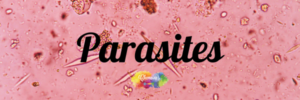Alcohol is allowed on most health protocols, including The HETA guide, and should be enjoyed as part of the social aspect of your health. But which ones? Because not all wine, beer and spirits are created equal.
But it is important for you to understand that — when you consume alcohol your body will NOT burn any other fuel source while alcohol is in the body. Therefore carbs/sugar and fat get stored as body fat or muscle glycogen while your body detoxifies the alcohol!
Also apart from directly affecting the kidneys and liver, alcohol effects the body in other ways too. To name a few;
- Consuming alcohol can drastically affect how your thyroid functions — such as blocking its activity, or lowering levels of hormones T3 and T4. Alcohol is also known to destroy thyroid cells, which are sometimes used in treatment of a condition called thyroid nodules. Over time consuming alcohol can reduce the size of the thyroid, thought it initially enlarges it. This means the thyroid gland is left with fewer cells to produce T4 and T3. Continuous use of alcohol can result in Euthyroid Sick Syndrome (ESS), in which rT3 is elevated and T3 is reduced.
- Alcohol breaks down and destroys muscles. Also known as “Alcoholic myopathy”, which causes swelling, pain and weakness in the muscles as it degrades muscle integrity. This also prevents the growth of new muscle tissue.
- Alcohol can damage the fatty insulation or the white matter that surrounds the axion of the neurons which impairs neuronal functioning. You get a “myelin” deficit – so if your drinking and you have an issue with myelin production or mitochondrial health, or concerns about MS (multiple sclerosis).
- Alcohol damages gut health and the gut lining, which directly impairs good bacteria, encourages the growth of bad bacteria and yeasts, reduces serotonin production ( impacting mental health) and digestion.
Moving on – Wine is, as many of us know, touted as good for you. Red wine specifically, but let’s be realistic – wine contains sugar, alcohol and sulphites. It does contain Resveratrol which is a polyphenol sirtuin nutrient and other antioxidants but these are irrelevant if the wine you are consuming is laden with chemicals. So wine is good for you in moderation if it is a good quality clean wine. This is where we look at organic and biodynamic wines. Wines also contain sugar/carbs… generally Rose and white wine have higher sugar and are unhealthier then red. You can read up more on sugar content of wine here .
Finding out how much sugar you’re consuming is hard to tell, since most countries don’t indicate sugar content on the label, but here’s a basic breakdown of wine types and how much sugar they contain:
- Bone-Dry <1 sugar calories per glass
- Dry 0-6 sugar calories per glass
- Off-Dry 6–21 sugar calories per glass
- Sweet 21–72 sugar calories per glass
- Very Sweet 72–130 sugar calories per glass
Wine is actually only “heart healthy” if combined with physical activity. In a study called In Vino Veritas (In Wine, Truth), researchers introduced wine into people’s lives and tracked the effects on their bodies. By itself, drinking wine did not significantly affect cholesterol, blood glucose, triglycerides, or levels of inflammatory markers. But among those who worked out twice per week and also drank wine, there was significant improvement in health variables after a year of wine consumption, no matter whether it was red or white.

So the type of wine you choose is important. I try to stick to Organic, Biodynamic and Natural wines. We are lucky enough in Airdrie to have a wonderful liquor store Sierra Springs which has a nice stock of Organic and Biodynamic wines.
What’s the difference in these though? Let’s look —>
Biodynamic wine; This is a holistic manner of farming. It is the oldest, anti-chemical agricultural movement that predates the creation of organic farming by about twenty years.
Basically its grapes where the farmers are taking longer times for filtering, double-filtering, and extended fermentation. These are chemical, pesticide-free grapes and there are no additives. Farmers making the wines have been able to make a nice, full-body, clean wine with minimal sulfites added, which sit at about 35 parts per million which is very low.
Biodynamic wine is a wine made,
- grapes are grown at a high elevation, specifically at 2000 feet or higher elevation
- extended fermentation of 10-15 days, versus the standard 1-2 days fermentation that most wine companies use, which further concentrates antioxidants
- pH levels that are at optimal levels
- been cold stabilized and chilled to drop out impurities prior to filtration, then filtered with extremely tight filters like diatomaceous earth and micron pads, sulfites can be cut significantly, down to as low as 35ppm. With lower sugar and lower sulfites, the risk of blood sugar swings and headaches goes way down when this kind of filtration process is used
- avoided the addition of residual sugars to the completed wine, then using a Brix scale, the sugar content of the wine can be significantly decreased.
- The final biohack is to reduce both calorie and carbohydrate levels without lowering alcohol content.
Natural wine; These wines are a movement, not a label. The idea is to stop considering that a person is making the wine: the vintner is rather accompanying the winemaking. A natural wine is one with; organically-grown grapes, harvested by hand, rushed to the winery, fermented on wild yeasts and low levels of sulfites (or none at all). A natural wine essentially is fermented grape juice. Natural wines themselves, however, have existed for hundreds of years. When wine was first made 8,000 years ago, it was not made using packets of yeasts, vitamins, enzymes, Mega Purple, reverse osmosis, cryoextraction or powdered tannins – some of the many additives and processes used in winemaking worldwide.
A natural wine is a wine made,
Most natural wines are neither filtered nor fined. The few that are will either be filtered extremely lightly or fined with organic egg-white. If sulphur dioxide is added, it will be only at bottling and only in the tiniest quantities. Many natural wines are made without the addition of sulphur dioxide or sulphates at any point.
Organic wine; This is the growing of grapes conformed to organic farming. Organic farming is defined by regulation (country-specific) or stand-alone certification. It avoids chemical fertilizers, pesticides, fungicides and herbicides. Many wines labeled ‘organic’ are actually made with conventional methods: only the grapes are organic. By the way, organic doesn’t imply that the wine doesn’t have additives. There is, in fact, a list of additives, including things like yeast, egg whites, and animal enzymes (like rennet in cheese) that are allowed in organic wines. Being organic doesn’t necessarily mean a wine is vegan.
PS organic wine farmers can still add sulphites and GMO’s too.
The rules differ –
- USA: “a wine made from organically grown grapes without added sulfites”
- EUROPE & CANADA: “a wine made from organically grown grapes that may contain added sulfites”
The area of wine can get quiet confusing – like seriously. Some of the articles I went through contradict each other. I literally had to weed through them to find consistencies and references.
Prossecco, Cava and champange are low carb and are also a great choice if you want a refreshing drink… that can be found ‘organic’ too!
For amounts – I generally advise between 1-3 glasses of wine a week is acceptable, especially if you are on a fat loss journey and ideally on refeed day.
When choosing wine, remember – the lower the alcohol, the lower the sugar. The lower the sulphites, the less the hangover!
Then as for other alcohols, because unfortunately, not everyone likes wine. The best beer I have found studies or backing research on are — Craft beer . Of course we remember to check if the beer we are consuming is made from WHEAT or other grains as we know what this does to our gut and inflammation. Beer is basically just a alcohol and carbs. Also beer is very ‘estrogenic’, which means it will add to the estrogen load and problems already in your body.
Spirits… while all spirits are carb, sugar, and fat-free, some shots are still more calorically dense than are others. A single gram of alcohol contains seven calories, so the higher the alcohol content, the more calories it contains.
It’s also worth noting that whiskey does have a higher level of antioxidants than clear liquors, especially if it has been barrel aged. Therefore making whiskey a modbiotic and it is rich in ellagic acid, which the American Cancer Society claims may slow the growth of tumors. It may also erase wrinkles, per research published in Experimental Dermatology. The darker the whiskey, the higher the polyphenols.
Be aware of what mixers you are using with your spirits though. Tequila is naturally sweet to taste for instance, so it can be enjoyed by simply adding soda water and a splash of lime. Tequila is also gluten-free, making it a good option for celiacs.
If drinking spirits, try stick with Vodka or Tequila! Gin is OK too (even though it makes me want to vomit!). And sweeten with Zevia or soda water and fruits, or even a splash of concentrated juice.
Avoid alcopops, they are a bad idea and if ordering cocktails, just make sure to weigh up the pro’s and con’s of the ingredients…choosing lower sugar where possible. If you would like to make some home made cocktails that are on the healthier side, I have some ideas here.
For amounts – I generally advise between 1-3 servings a week is acceptable for spirits, especially if you are on a fat loss journey and ideally on refeed day. For beer, 1-2 to a week is OK and ideally on refeed day… but generally this is something I advise against for pre-menopausal women, especially if on a fat loss journey (so please consider this).
When having alcohol it is wise to load up on vitamin C before and after, this will help with glutathione production and take some activated charcoal… together they will bind to toxins and support detoxification pathways!
I’m far from trying to promote the drinking of alcohol! But I understand alcohol is a part of society and many of our lives. I am trying to teach you how alcohol effects the body and, help you make healthier choices for you and the life events that you may attend that have alcohol present. Check out this interesting article that highlights some of the health benefits of alcohol.
**REMEMBER to always drink smartly and safely (and PS don’t talk to strangers, drive or operate heavy machinery while intoxicated).






